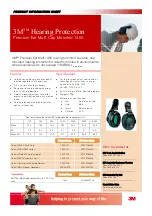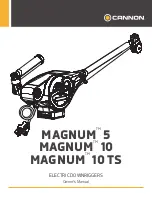
Recording & Compression
Hardware, Driver and Control Software
About Re/Vue
Re/Vue is a video recording product that fulfills
the specific capture, compression, and data archive
requirements found in ATC, training and simula-
tion, and command and control environments.
Re/Vue consists of video and audio recording hard-
ware, supporting driver, and control software. It
delivers lossless recording and compression with
remote and local data storage. Re/Vue integrates
with an existing workstation and monitor and
records from any DVI (digital) source at resolutions
up to 2048
×
2048 and 2560
×
1600. It also has a
web-based control interface to manage and control
single or multiple Re/Vue systems through a pass-
word-protected web-based browser.
Lossless Recording and Compression
Video recorders record data with varying levels of
quality. Many use compression algorithms like JPEG,
MPEG and H.264. While these lossy compression
algorithms are fine for some surveillance applica-
tions, their compression artifacts cause video play-
back quality to suffer. Only Re/Vue’s lossless video
recording with synchronized audio can guarantee
playback data quality will be identical to the original
source data. Even at a resolution of 2048
×
2048,
Re/Vue can record a full 60 frames per second.
Minimized Data Storage
Lossless recording of ATC video creates a huge
amount of data. Depending on configuration param-
eters and video data type, Re/Vue delivers lossless
recording with extremely high compression ratios
of 10,000:1 to 20,000:1 for typical ATC data.
Whereas, traditional video recorders typically only
offer a compression ratio of up to 300:1, Re/Vue’s
compression efficiency significantly minimizes data
storage. This allows approximately 30 days of stor-
age per terabyte.
Configurable Archival
Capturing and recording screen images and audio
doesn’t mean much if the data can’t be properly
archived and immediately accessed locally or
remotely. Re/Vue not only offers local storage
but also provides the ability to remotely archive
recorded data. Remote archival can be configured
to take advantage of existing storage servers on
the network and an archival schedule can be eas-
ily configured using the web-based interface. This
offers convenient retrieval of data from any remote
machine on the network for review of any incident
for investigative or training purposes.




















